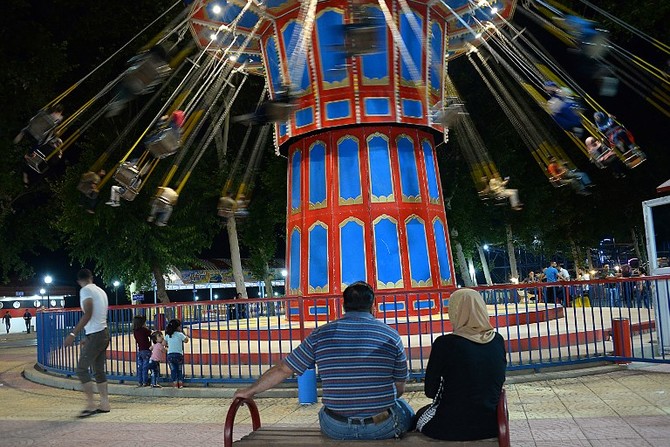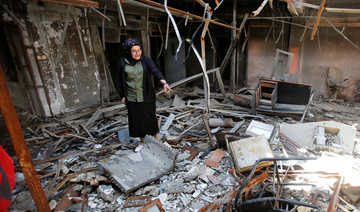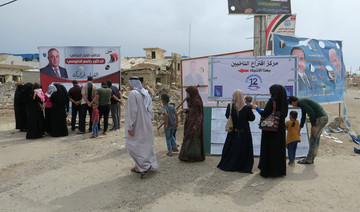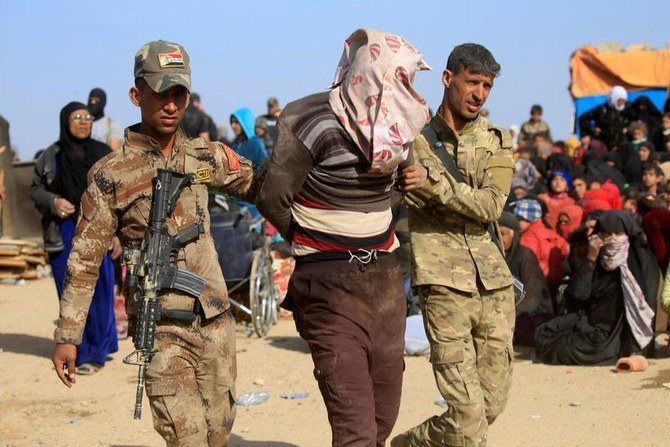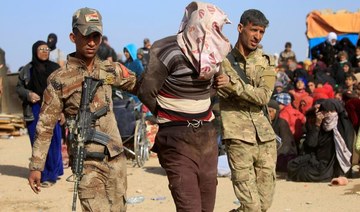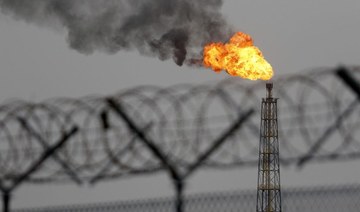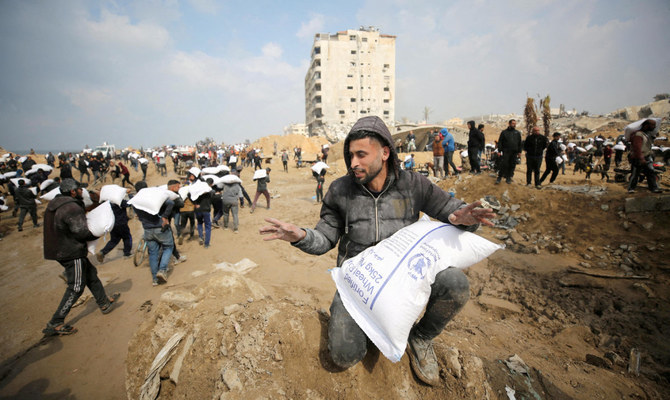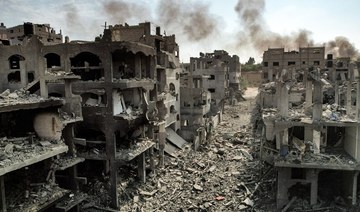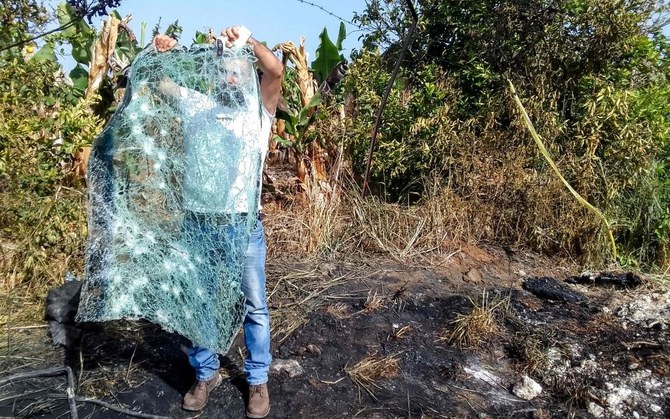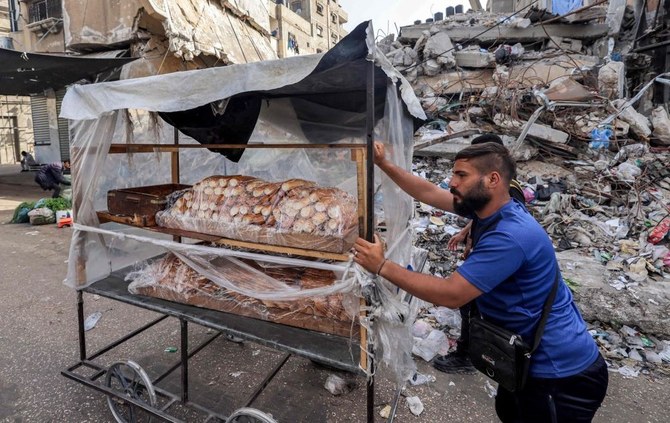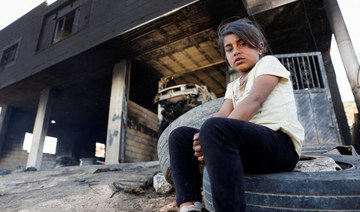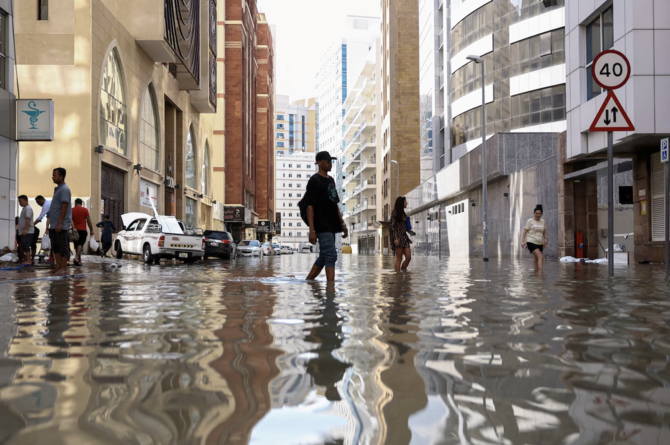MOSUL: Under the cover of night in the Iraqi city of Mosul, Rayan and Ali break the silence by drumming to announce suhur, the pre-dawn breakfast during the holy month of Ramadan.
The Daesh group which controlled the city for three years before its ouster last July had banned drumming, along with other Ramadan traditions that make up the festive spirit of the dawn-to-dusk fasting month.
But since this year’s Ramadan started in mid-May, Rayan Khalidi and Ali Mahboub have been doing their nighttime rounds, donning traditional keffiyeh headscarves and jalabiya robes.
The Ramadan drummers, known as “messaharati,” are “part of the religious and social heritage of Mosul,” the now war-battered city which has stood for centuries as a trading and cultural hub of the Middle East, said 25-year-old Rayan.
But the militants of Daesh decreed that such drumming was a sin, under their rigid interpretation of Islam enforced by its own courts and henchmen.
Ironically, Mosul residents had a Ramadan much like any other in 2014, when it started just days after Daesh had proclaimed its “caliphate” spanning tracts of Syria and Iraq.
Families descended on Mosul’s tree-dotted parks along the River Tigris in the relative cool of dusk to share “iftar,” the meal that breaks the daytime fast.
All across town, men and women gathered in coffee shops and restaurants, many clutching nargileh water pipes or smoking cigarettes — that was before Daesh laid down the law segregating the sexes and banning smoking at the risk of corporal punishment.
Most of Mosul’s restaurants and open-air cafes then closed their doors.
“Some of them stayed open for business after iftar but people were afraid to go for fear of punishment by Daesh who always found some reason to make arrests,” said 29-year-old housewife Umm Raghed.
Ramadan is a time for family reunions in Muslim countries, but in Mosul such events often only come about after several hours of shopping to collect the ingredients for the elaborate dishes for which the city is famed.
Under Daesh rule, “women did not have the right to go out, except in cases of extreme necessity, and even then a woman would have to be accompanied by a man and fully covered by a black veil,” said Nahed Abdullah, a 32-year-old taxi driver.
Hassan Abdelkarim, 26, whose sister was killed when their home was bombed last year, said the militants had destroyed many of Mosul’s mosques.
“Now we have to pay attention to hear the call for prayers from distant minarets to break the fast.”
If it’s tricky to determine the precise time for breaking the fast, knowing when to start is impossible, according to Abdelkarim, who is unemployed and lives amid the rubble of Mosul’s devastated Old City.
“We don’t have electricity or mobile phones to know the exact time” when the sun rises and the daily fast starts, he said.
Abu Salman, 45, never experienced life under the militants, having been displaced before the Daesh takeover in 2014. He returned to find his home and shop both destroyed.
“Ramadan used to be the best time of year for business. Now I have no source of revenue and have to survive on charity,” he said.
While families wait for the launch of the city’s reconstruction and assistance to help them get back on their feet, the “Moslawis” have revived another tradition: long tables set up on the streets to feed the poor.
“It’s a beautiful initiative and typical of the people of Mosul who are known for their sense of solidarity, especially in hard times,” said 45-year-old Umm Mahmud.
Thanks to the donations, she was able to serve her children a full meal of chicken, rice and orange juice at a table in the city’s Bab Lakash district.






